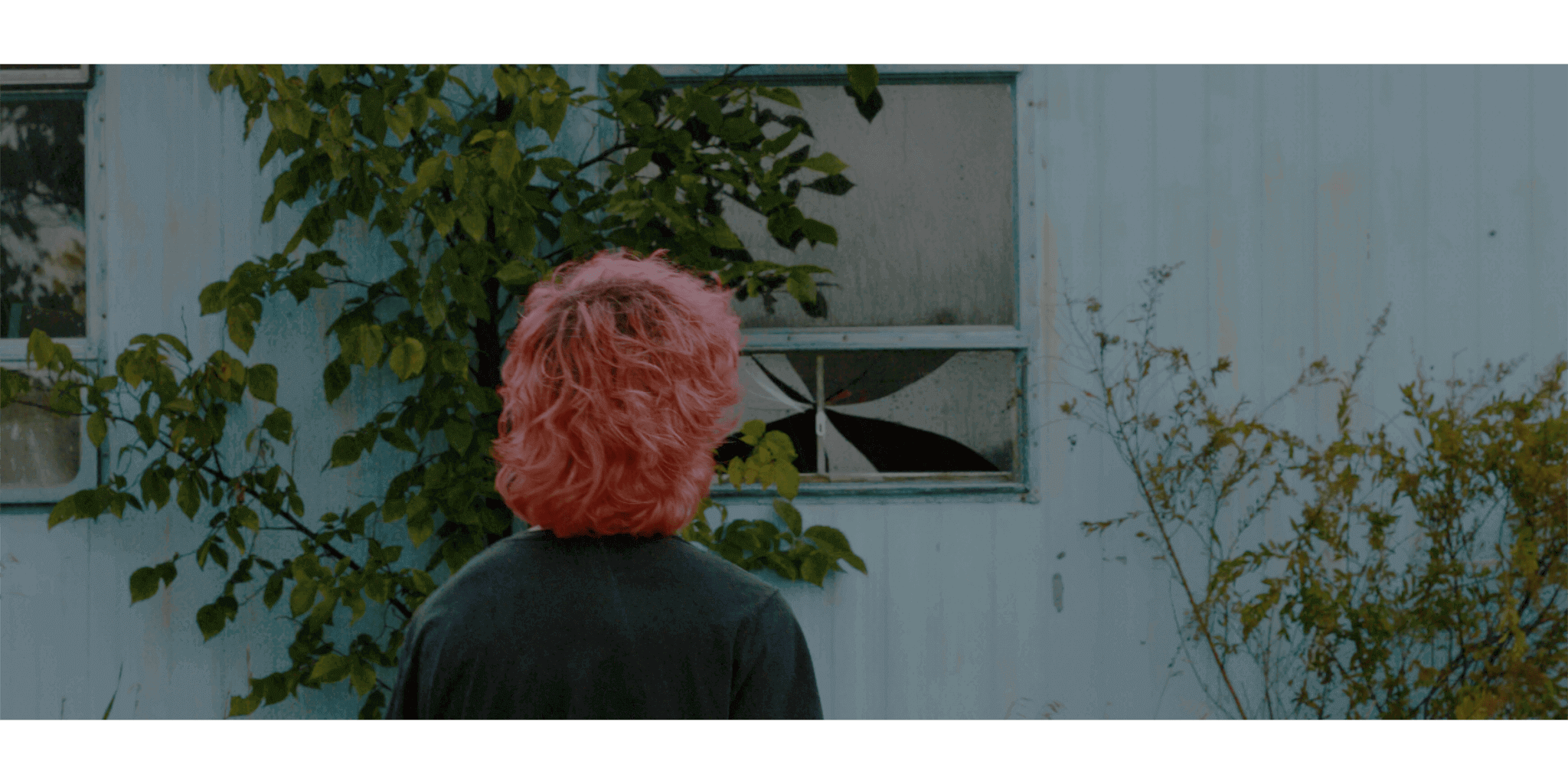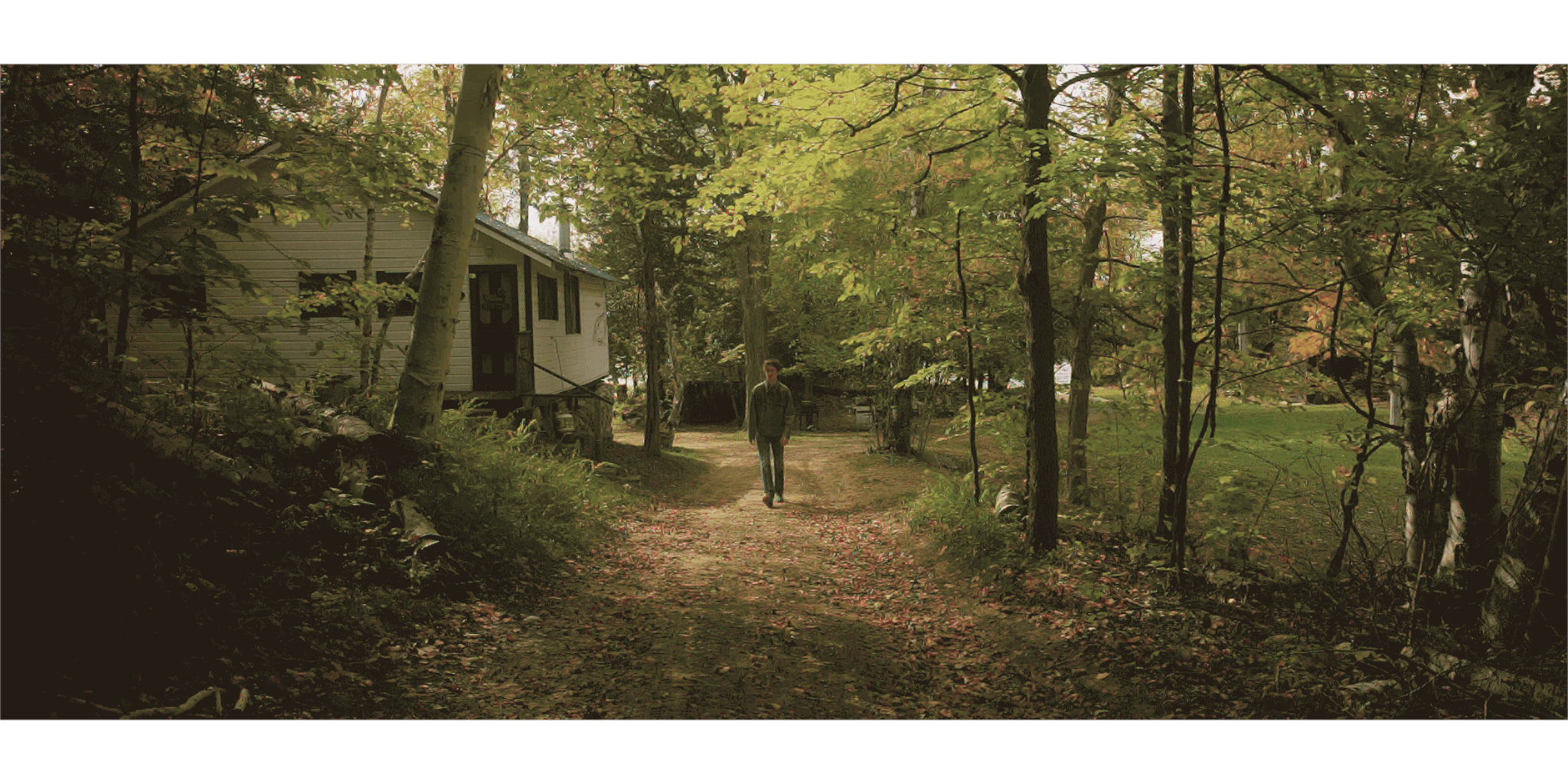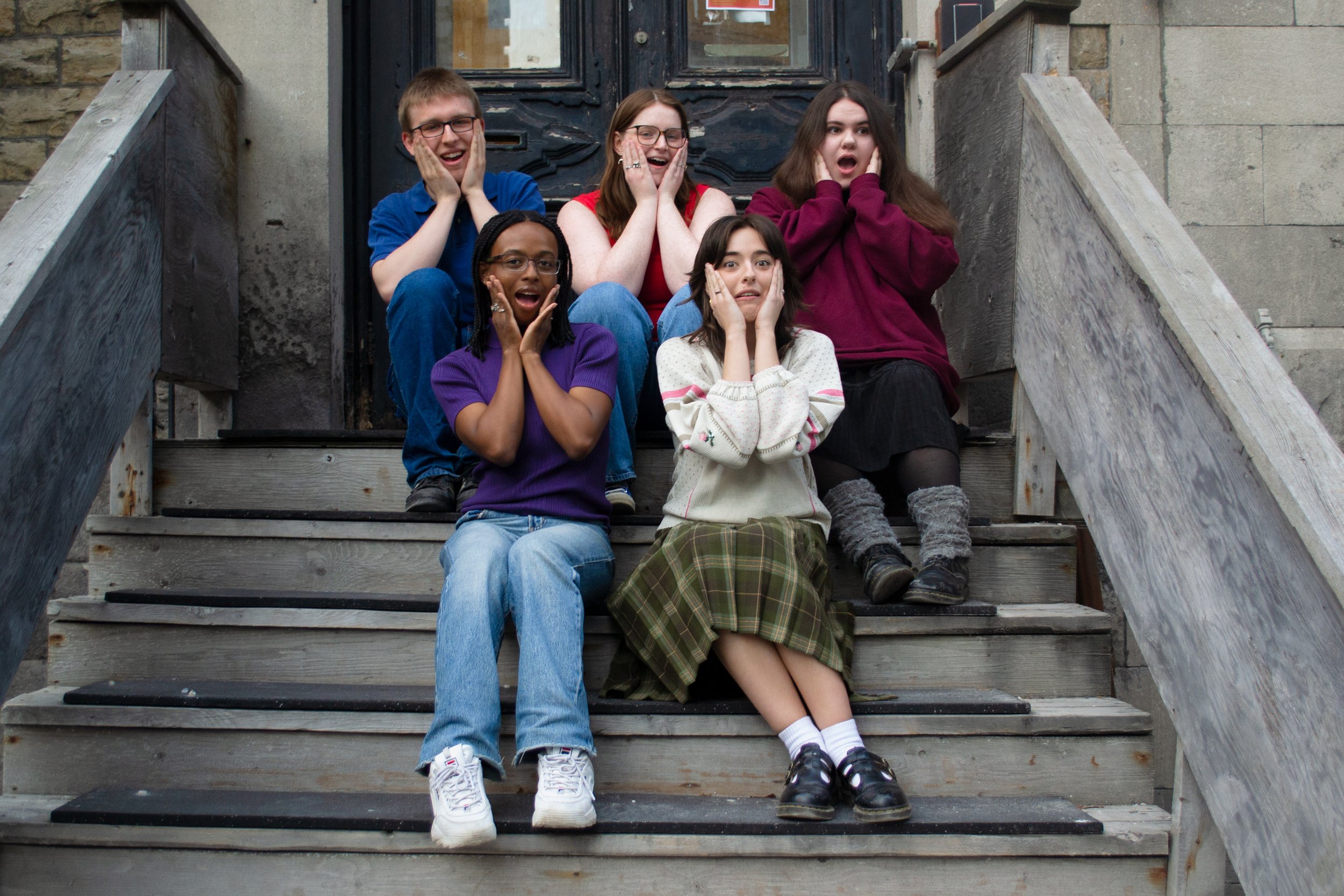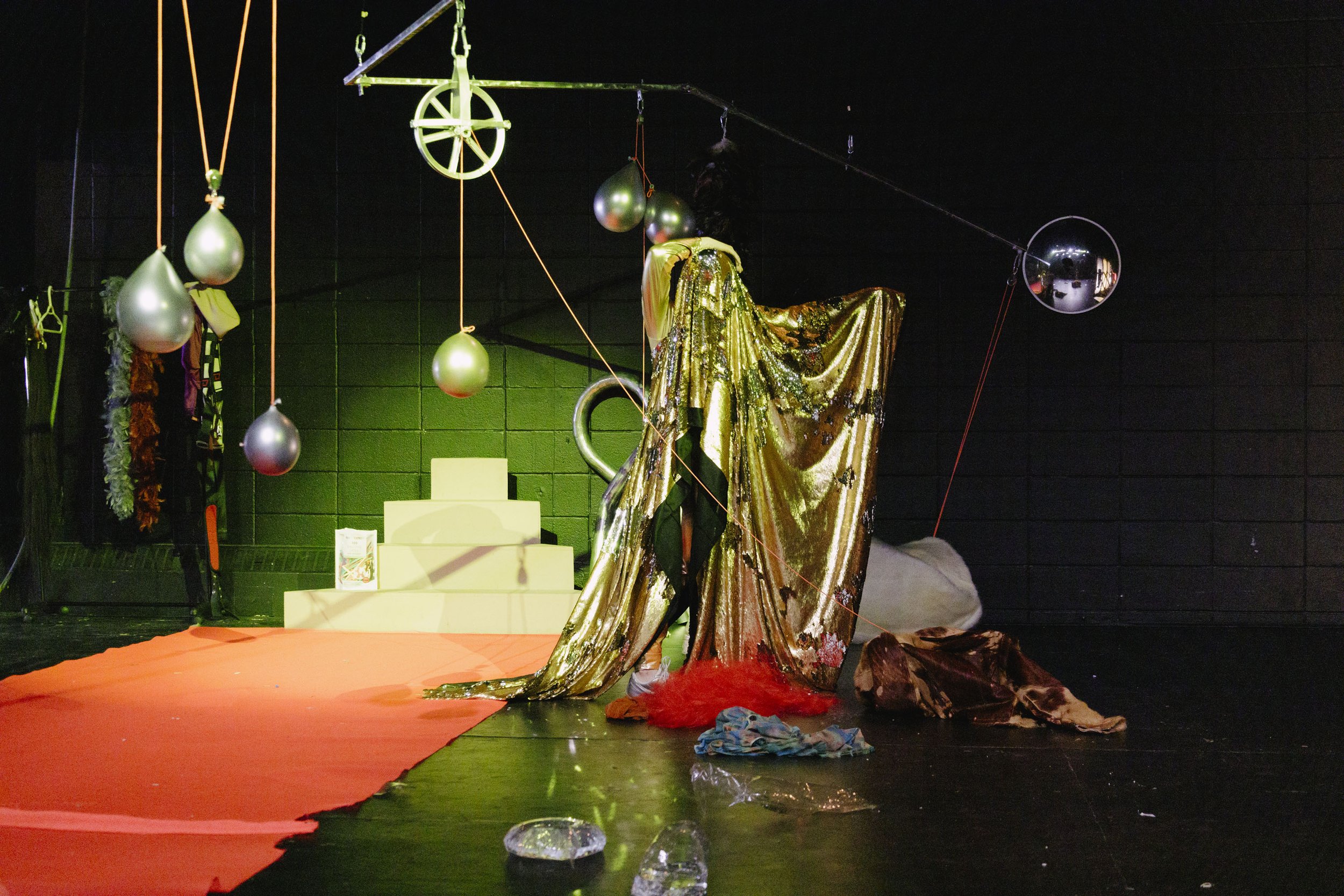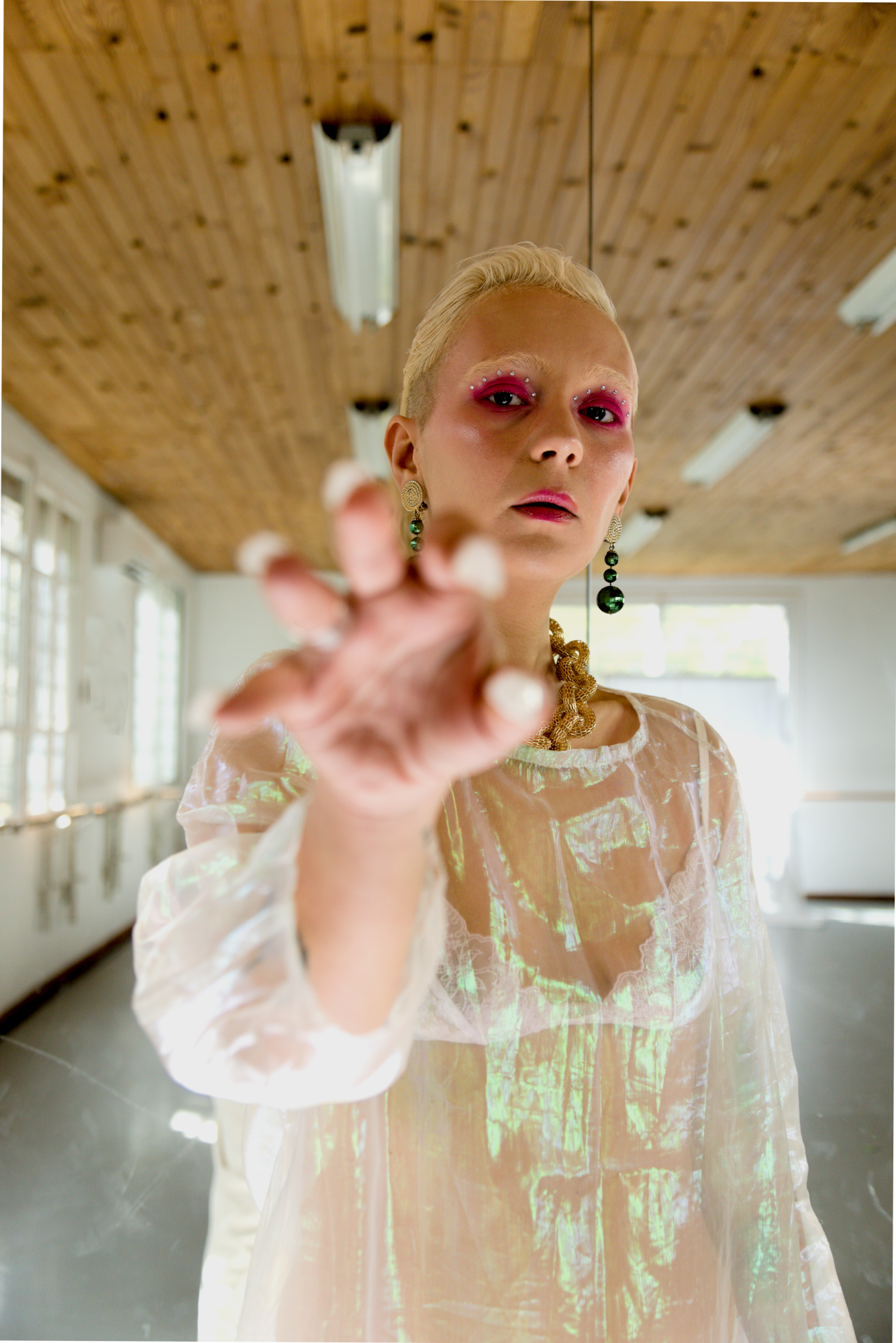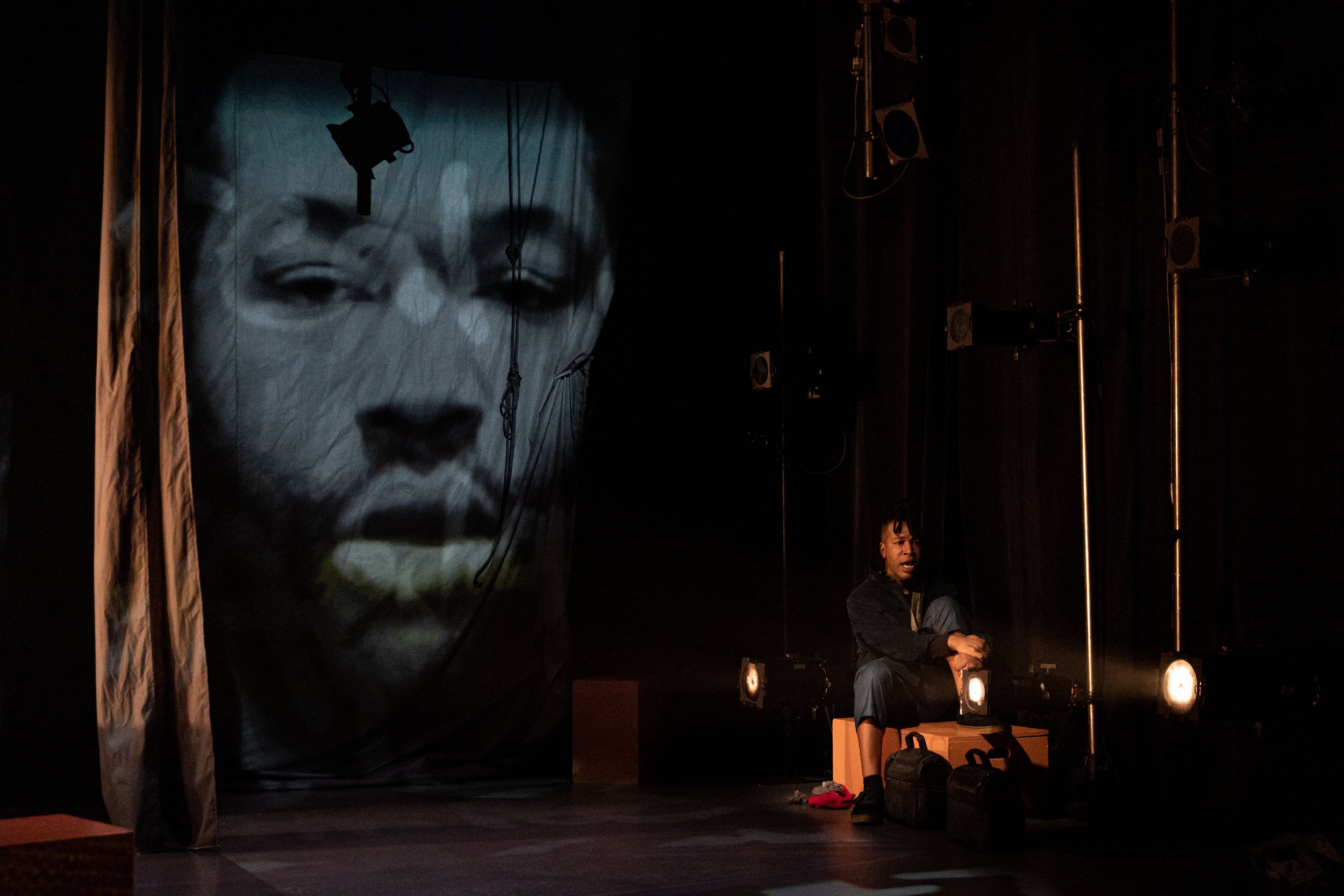How To Fix Radios: A Film About Finding Queer Community in Rural Ontario
Still from How To Fix Radios
When you're a queer kid in a small town, it feels like you might be the only one. Even though we (queer people) are beginning to have more and more media representation, it seems like we're often the victim of a hate crime or are only included to make the production seem more diverse.
But what if I told you there was a film by queer kids in a small town about queer kids in a small town? Introducing "How To Fix Radios," an indie film made by a bunch of queer Ontarians on a shoestring budget.
I had the chance to catch up with two of the film's creators, Casper and Dimitri. They're both under 20, based in Kingston, Ontario, and full of passion. We shared our experiences growing up as queer Ontarians, trying to figure out a creative path at 18 years old, and how you can find community in the most unexpected of places. Our conversation was one of the most genuinely heartwarming and comforting I've had in a while.
Still from How To Fix Radios
Malaika Astorga for Also Cool Mag: Let's start with the basics. Who you are, what do you do, and what is your film about?
Casper: My name’s Casper. I'm a freelance filmmaker, photographer and writer. That came into play a lot with the film because I wrote half of the script. I love nature, visual arts of all kinds, painting, and embroidery sometimes, but film is my main passion.
Dimitri: My name is Dimitri, and I play Ross in the film. I love acting; it's something I've been doing for a long time now. I dabble in most of the arts. Both of my parents are musicians, so I've explored that. I'm always keeping an eye out for acting opportunities, which there are not many here (in Kingston).
Also Cool: Yeah, but maybe making them for yourself, as you've done, is the best way to go. Could you give us a synopsis of the film?
Casper: The film follows a teenager named Evan, who's a sort of narrow-minded and isolated guy. One summer, he decides to work at a bait shop, as teenagers do in these rural areas. Upon arrival, he encounters his supervisor, Ross.
Ross has this exuberant personality and a very unique style. This sort of throws Evan off because it's very different than what he grew up with. After meeting Ross, Evan gets to know his world, including Ross's sister and this underground dealer character, their boss' son. Upon discovering the chaotic world that Ross lives in, Evan's worldview expands and changes, and he discovers more about himself.
The film was really inspired by our growing up in this area in rural Ontario. The good, bad and the ugly, all of it just together and how that affected us and our worldview.
Still from How To Fix Radios
AC: I rarely see characters in film who aren't accepting and aren't painted as evil and instead are acclimated to queer culture. It's a nice contrast to the narrative of a lonely queer trying to survive in a straight world. I'm curious why you told the story that way and why you think it's important.
C: The character of Evan was a really important one to us. Both I and my co-writer Emily have been either one of those people at different points in our lives. Evan was that feeling of not fitting in, but at the same time not realizing what's right under your nose.
It's also about how queer communities and friend groups form. We sort of gravitate towards each other naturally. That sort of idea is never really shown in media, where queer people are shown in rural areas. It's always "Oh, I don't want to be here anymore, I'm trying to get out of here." This is a key element in parts of the film. Still, we also wanted to portray how queer people can have found communities and families in any place.
AC: Many queer coming-of-age films portray the queer leaving the suburbs/farmland to find the other queers in the city. It's really comforting to see an alternative.
D: It was so cool to play that kind of character for me because I was the first person to come out at my school in 6th grade. As a young, newly out queer person, I wanted to consume as much queer media as possible. There were so many characters who I looked up to just because they were representation for me. The potential to be that for someone who needs to see that, it's the most beautiful thing. All I really want to do is to help people be more comfortable with themselves.
Still from How To Fix Radios
AC: What kind of queer representation did you have growing up?
C: I think D and I had very similar experiences coming out and growing up. I came out in grade 7. I'm the kind of person who naturally gravitates to media and escapism in general. That was a huge part of my identity, finding those movies or TV shows or books.
One thing we really wanted to portray is how much the dialogue about queer people has changed. When I first came out, the only narrative I saw was that queer people lived in the city. As a queer kid in rural Ontario, I felt like the only way I could really be happy is to move to one of those big cities. It was all queer kids leaving rural communities, OR they got hate-crimed.
This is still a reality, and it does happen. We show some of that in the film, as well as the other side of life where these places can be really beautiful. We're just trying to show it as beautiful instead of as a place that people are always running away from.
AC: I think that would've helped my younger self a lot. There are so many different ways to be queer that I'm still learning about now.
C: Showing all these kinds of identities and stories without a huge Hollywood budget has been so important for us. You can make this content and representation and form these communities for free. This has been really important with our film.
Even though we had such a low budget, that's kind of what made it. That's the reality of having a queer community in a place like this; you don't have a ton of funds or marketing or whatever; you just have each other.
AC: I think that it demonstrates the genuine sentiment of the film. It is just you and your friends who are really passionate about sharing this story and these experiences.
What is the art scene like where you're from? In my experience, it seems like rural areas with queer teens tend to have a great art scene. It's small, and maybe you hit the ceiling real quick, but it's enough to get you going.
C: A huge part of why this film got made in the first place is this school that all of us went to, LCBI. It's a school in Kingston that has a film-focused program called Studio LC. The program is run by two teachers who pour their hearts and souls into it. Basically, we just got to make short films and learn about cinema for six months. Without that guidance, I don't think this would've been possible.
Kingston is kind of an arts town; it has a huge arts community. The film industry in Kingston was non-existent until five years ago. But recently, Netflix filmed something downtown, and we've had a few things happen in film here since. There's now a film office that is ramping things up, and I think the future of Kingston is going to be a really vibrant arts community.
D: There are also a couple different youth groups for queer people specifically. It was really helpful to be around other people who were like me. I went to the pride parade in Kingston even before I was out. Seeing people who were queer and older and happy means a lot, especially to younger people.
Still from How To Fix Radios
M: Who are some local artists who inspire and you think deserve more credit?
C: Oh god, ok, I think we're going to have to do this D. So our composer who's not here (Hector Jenkins) just released an album called Don't Let Me Grow Up. It's a really great album, and we used quite a few songs for the film's soundtrack. It's very Ontario-core indie-pop but not really indie rock, indie-folk. He's a great musician.
D: The music that plays over the campfire scene in our movie is by The Orange Alabaster Mushroom, my dad's band. It's kind of like psychedelic garage rock. He's my dad, so I think I'm a little bit biased, but I think it's so cool.
AC: That's the craziest band name I've ever heard. I assume that making a film is harder than you would think it is. How was the process of figuring all of that out?
C: It was a huge learning process. One of the most fulfilling things of the entire thing was finishing writing the script. Before that, the only things I had written before screenplay-wise had been short films. So delving into the feature was a whole different world.
In terms of the feature itself, it was really a feat to pull off. I'm really surprised we even did it because of how hard it was to get the ball rolling, mainly because of COVID and filming regulations. The filming process itself was fun but challenging. It was hot and muggy all the time but also so much fun to hang out and make a movie.
For the post-production process, it was a struggle. I edited from September to December. On top of that, we had no producers at all except for the seven of us.
I'm 18, so learning how the music and film industry works, especially with licensing, was one of the hardest things I had to do. Finding those people and reaching out, and — if they even responded — trying to coordinate something with that. After reaching out to many artists and being quoted 20k for one song, or having them say “sorry, we're not interested”, we found these two artists. They were just so incredible and lovely. One of the songs was Tall Cans by Pigeon Pit. They're a musician based on the West Coast of America. They were so nice and gave it to us basically for free. The other band was The Spook School out of Scotland, who also basically gave it to us for free.
D: I could talk for hours about how much I love those bands. I've been listening to The Spook School since I was 15, so having their music in the film and having them watch the premiere was just mind-blowing coolest fucking thing in the world.
AC: Yeah, I realized pretty early on that I should just email the people I thought were cool and ask to interview them. That's how I made friends.
C: Yeah, I found that the only way to make anything or make any progress is never to wait for something to come to you. You literally just have to search it out. Shout out to my mom for helping me navigate the legal side of things because that was a learning curve.
Still from How To Fix Radios
AC: I'm sorry if everyone in your life is asking you this, but I'm curious. So you're both at an age where you may or may not go to school or move to a different city, what are your plans for the maybe not-so-near future?
C: Haha, it's ok. I'm used to it at this point. It's a tough thing, especially with the pandemic, but I applied to university last year. I deferred but, as time goes on, I get more and more turned off by the idea of film school.
It just doesn't seem like the right environment for me to learn. After completing a feature, I can't really see how that learning could be sufficiently brought into a classroom. So I've kind of been turned slightly away from that but still keeping my options open. That being said, I'm always looking for opportunities to work on set and pursue what I've been building.
I was going to go to Toronto for film school, but now I'm kind of thinking that I might stick closer to home. Especially after making this film and embodying Ross's story and seeing how much he still loved the place he lived in, even if it didn't work for him sometimes. I kind of took that to heart and kind of accepted that this place isn't that bad.
D: Similarly to Casper, I'm also keeping my eye out for opportunities. I'm lucky to be friends with a bunch of very talented people who write very talented things.
It's tough to plan things right now, which is hard because I'm very much a planner, but I'm hoping to move a little further out of town by the end of the year. Spending so much time out in the country, I just remembered how much I love it. It's so quiet and peaceful, and the stars you can see at night just make me want to cry.
C: I went on a walk today, and I just feel lucky to live where I do. The things I value the most are just time and nature and quiet. We're such introverts (laughs).
Still from How To Fix Radios
M: Do you have any rituals or things in your life that are important to you? The way I walk home from work/school indicates whatever era of my life I'm in. I'm curious what might be similar to that in your own life that makes you feel grounded and connected to yourself.
C: Every single day, I go on a walk or a bike ride that's about a mile. I can't miss it, or else I feel like crap. Every single day I walk down my road, which we shot a lot of the film on. It kind of feels like as I'm walking past the places we filmed, I see a vision in front of me of what we were doing, and it's cool to be able to reminisce every day. Walks are really important to me, and I just love being outside in the country.
D: I also love walks even though I live in the city. The other day I went down by the water and watched the ducks for a minute. It's just the simple things that mean so much, especially to me right now, because it's so hard to plan and have grand achievements that a lot of people expect out of you. That being said, doing a feature-length film is absolutely incredible, but it's not something that happens every day. So seeing the animals coming out of hiding after the winter is beautiful.
C: I saw like 200 geese today fly over my head; it was really weird.
Still from How To Fix Radios
M: In one of your TikToks, one of your characters was described as having a lot going on but being chronically bored. I relate to this on a very deep level. Can you expand on this?
D: That was me talking about Ross. Ross is such an interesting character. He was described to me as someone who's walking down a flight of stairs with his eyes closed with the confidence that he'll end up upright anyways, but with no way of knowing.
I think Ross does have a lot going on, from an outsider's perspective. It's a lot to take in for Evan, but it's been happening for his whole life for Ross. He's constantly seeking out alternatives but not committing to them. Causing havoc just to see what will happen.
C: He's kind of a “fuck around and find out” kind of guy.
M: I think maybe that's just a creative queer thing where it's like, "I know where I'm supposed to be, but I don't know how to get there, and I don't know what it is, but I can feel it. And I know if I do certain things, then I can find that feeling, and I'm just going to have to do lots until I get there."
C: That's so accurate; it's like being a ship in the night.
M: Yeah, you just bounce off of things until something sticks.
C: Yeah, no one knows what they're doing, but we're all trying.
Still from How To Fix Radios
M: I also really strongly believe that constant change is one of the hardest things to grapple with, but it is a really important lesson to learn how to ride with it. Especially when you're learning about all these new terms and identities and understanding how you fit into them, and you evolve from one to the next. TikTok has been a really good tool for that, for me at least.
C: It's like a good version of Pandora's box. I find that it's a huge part of Evans's character as well. He's never labelled and never labels himself as anything or says what he is because that's what the experience is for so many people. It's this constant, "What is happening with me?"
D: NOT STRAIGHT!
(all laugh)
C: I think it's also important to have a character who questions their identity, and there's never a solid "This is what I am" moment at the end of the film. Giving a concrete identity is unrealistic, and it doesn't really happen nearly as often as people think it does.
AC: Where can we find you on the Internet, and how can we best support your and film and any future projects?
C: You can find us at How To Fix Radios on Instagram. We have a post with everyone's pictures and bios and how to contact them to hire them.
Many of us are going in different directions, but I'm currently working on a script about vampires in Ontario.
AC: I love Ontario-core.
How To Fix Radios
Malaika Astorga is the co-founder of Also Cool. She is a Mexican-Canadian visual artist, writer, and social media strategist currently based in Montreal.


